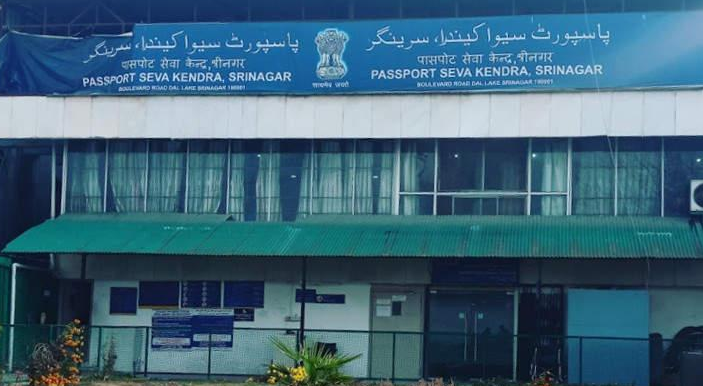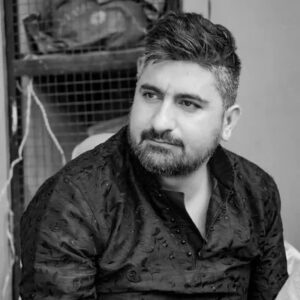Denial of passports in J&K: Barrier to freedom & opportunities

J&K Police denied passports to 805 applicants, from 2019-2022, citing “terrorism-related antecedents” (Photo: RPO Srinagar)
In the heavenly valley of Kashmir, a shadow of discrimination looms over families of former militants or even those ties to past militancy. Despite efforts towards peace and reconciliation, many residents of Kashmir find themselves denied a fundamental document symbolising freedom, a passport. This denial is based on an undeclared official policy of refusing passports to anyone with familial association with militancy.
For decades, Kashmir has been embroiled in a complex web of political turmoil and armed conflict. In this context, numerous families have had their members involved, directly or indirectly, in militant activities. However, as the region strives for stability and peace, many individuals from these families have chosen paths of peacebuilding and non-violence, seeking to move forward and contribute positively to the society.
Yet, they find a major stumbling block in their path to a new future and to take opportunities that lie ahead. Without a passport, they cannot travel overseas for studies, work or simply pleasure, keeping them out of experiences that almost all other Indians take for granted, as it is their fundamental right to do so.
Mehak Ramzan, a PhD student from Baramulla, is one of the thousands whose passport application was rejected. She says that the state police officials, part of the Criminal Investigation Department (CID) of the state police, filed negative reports on her passport application, citing security concerns. Ramzan is obviously unhappy and says it is all to do with the fact that her uncle lives in Pakistan.
“My uncle moved to Pakistan in 1990 when I was just 2 year old. I don’t even recognise him. But still, the CID officers have filed an adverse report with the passport officer,” Ramzan tells Media India Group.
“On the one hand, the Government of India claims that the people of Jammu and Kashmir have equal rights, but the truth is that passports are being denied or impounded arbitrarily. It is obvious that withholding our passports is pure vendetta,” she adds.
The residents of the territory say that Jammu & Kashmir is the only place where passports are issued at the whims of the state intelligence department or CID. Applicants have to get clearance from high ranking CID officials like the Inspector General and in certain cases, CID officers can even recommend how long the passport should be valid for.
“My father was an ex-militant, but he chose to surrender in 1990, opting for a peaceful life thereafter. He married and started a family, of which I am a part. Despite the fact that my father has been leading a perfectly peaceful and normal life for the past 34 years, I have been consistently denied a passport for several years now. It perplexes me that the government continues to penalise me for actions that occurred before my birth, without even considering my conduct or character,” Zainab Mushtaq, a student from Srinagar, tells Media India Group.
“Last year, I received a scholarship in Turkey, but because I didn’t have a passport, I couldn’t go. Every day, I find myself going to the police station and CID office for verification, but despite my efforts, there is no progress or resolution in sight,” Mushtaq adds.
The residents say that with its undeclared policy of a blanket denial of passports to individuals with past familial connections to militancy persists, the government is creating barriers to education, employment, travel, and growth opportunities for the very people who have forsaken violence and chosen to opt for peace and contribute positively to the society.
And in some cases, it is not even the people with familial links to former militants, but also to others who have not been involved in such activities, but simply because they are vocal in criticising the government over its policies and actions.
“My passport was withheld for around one and a half years. It was released recently after a lot of outcry, and interventions. Although there was no official explanation for why the passport was withheld, I learnt from official sources that it was withheld due to my critical stance in TV debates, writings, and tweets,” Nasir Khuehami, a student activist, from Srinagar tells Media India Group.
But for some, even getting a passport, finally, does not mean an end to their struggles. In fact, they face challenges both in India and abroad simply because of their Kashmiri origin.
“When I reached the Tel Aviv airport in Israel for a championship last year, my passport and all travel documents were confiscated. I was made to sit for five hours just because I was from Kashmir,” Nayeem Ahmad (name changed), a Kashmiri athlete, tells Media India Group.
The local political parties say they too are opposed to such discriminatory policies and have been taking up the issue with the Centre.
“Our party believes that the government should not punish the children or relatives of ex-militants for actions they have not committed. It is unjust to hold them accountable for crimes they did not participate in. Instead, if there are any suspicions, the government should monitor them for a year before making any decisions regarding their passport,” Mohit Bhan, Spokesperson of the People’s Democratic Party, tells Media India Group.
According to records, the J&K Police has denied passports to 805 applicants, from 2019-2022, citing “terrorism-related antecedents”. In all, there is a pendency of more than 5,956 cases, which is a little over 2 pc of the total 2,87,715 passport applications received during the four-year period.











